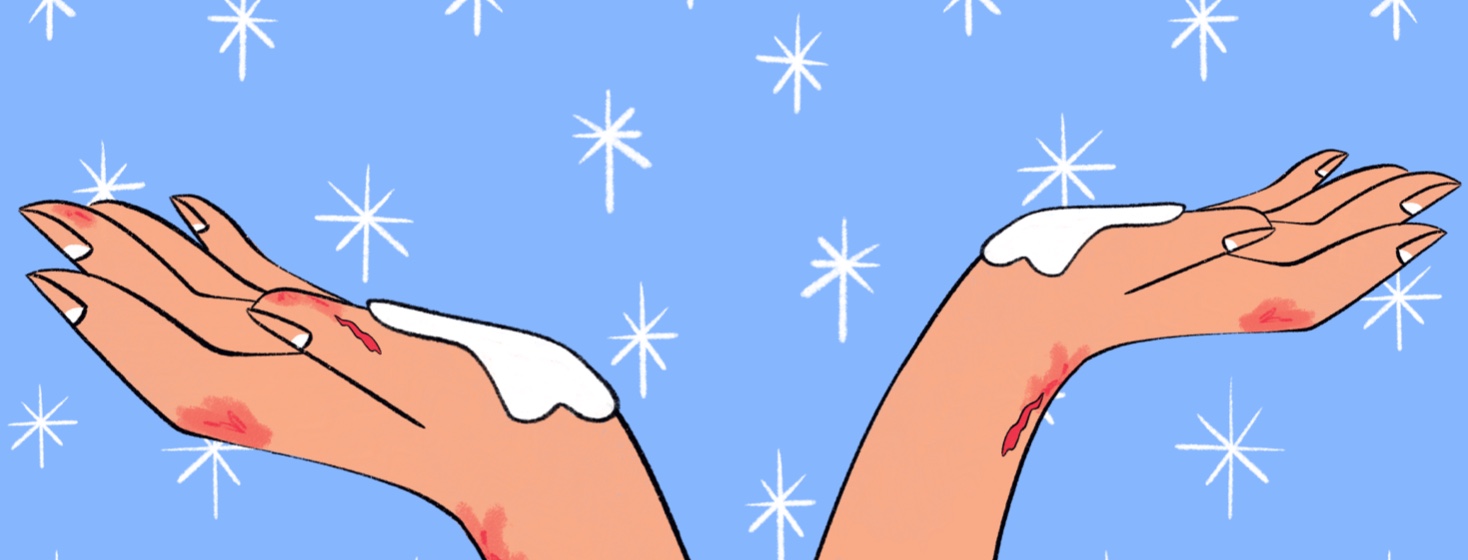4 Ways To Manage Dry, Cracked Winter Rashes
If I develop rashes during the winter season, the worst things that I typically will deal with in regard to eczema are dryness and deep, cracked bleeding wounds that come from that dryness. I find that if I have eczema flares during the winter, they tend to go pretty deep into my skin. This makes them feel like I am getting stabbed from the inside if I move and they have not at least scabbed over, if not fully healed.
In this blog, I will share my best tips for coping with and recovering from this type of seasonal rash.
Disclaimer: These are just my own opinions and experiences and you should definitely remain cautious and careful about what you consume if you have any allergies or negative reactions to any of the recommendations or food that I mention that is something that you will have to figure out on your own by getting an allergy test or just being your own Guinea pig. I've learned a lot of what I know works for me through just being my own guinea pig and sometimes I just involves taking the bullet and making mistakes and learning from them and hopefully never repeating them ever again.
Featured Forum
View all responsesFind balance
The first thing I do is take a Traditional Chinese Medicine approach and try to find a way to balance out the coldness and dryness with the exact opposite factors is what is helpful. In this specific case, I would need more warmth and moisture or humidity. I can achieve more moisture through moisturizing with lotions, creams, and body butters. But there is also the cold temperature which I could balance out with more warmth by bundling up with more insulating clothing, turning on the heater in my home, and, if I am capable of it, exercise or increased movement.
Avoid eczema-triggering foods
Avoid trigger foods. The thing with the cold season, at least in the United States, is that it is typically involved with the holidays which have heavily marketed sweet treats like cakes, ice-cream and other highly inflammatory food and drink to “be in the holiday spirit.” Because of this, I find it helpful to stay away from dairy, cane sugar, and alcohol. Instead, I try to stick with fresh, hot soups with vegetables, rice (or some other grain that is easy to digest) and some kind of protein source that I am able to digest well. For me, that is usually pork, chicken, beef and eggs. But if you’re vegan, you can experiment to find a protein source that works for you and your lifestyle.
I will also try to supplement my diet and digestion with some herbs that I really enjoy consuming as a tea or including in my soups or congees. These herbs would be ginger, garlic, rosemary, and onion.
Eat warm, easy-to-digest foods
Eat warm, easy-to-digest foods. I try to keep all of my drinks and food warm when the weather is very cold. But while I want to stay warm, I still avoid eating very spicy or fried food if my rashes are really bad. I find that if I eat too much spicy food, even in the winter, it can create too much heat and give me swollen, oozing rashes, which is a whole other issue and a beast to tame.
Protect your open or cracked flares
If you have any open cracked wounds and plan to go outside, make sure to bandage or wrap them first. Otherwise, you risk exposing yourself to even more coldness and dryness from your environment. What I like to do if I have active flares in the winter is to bundle up by wearing cotton-based clothing and underwear underneath, and then wear some kind of polyester clothing or other synthetic blend over that, since that is really good for keeping the heat inside which will be useful for staying warm while going outside.
I hope that something in this blog will be helpful to you if you are suffering from dry, cracked rashes in the wintertime! I’d love to hear how you handle your dry, cracked rashes. If you have any tips that you think would be helpful to others, please share them in the comments below!

Join the conversation